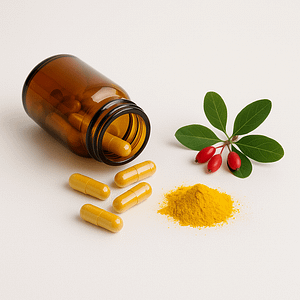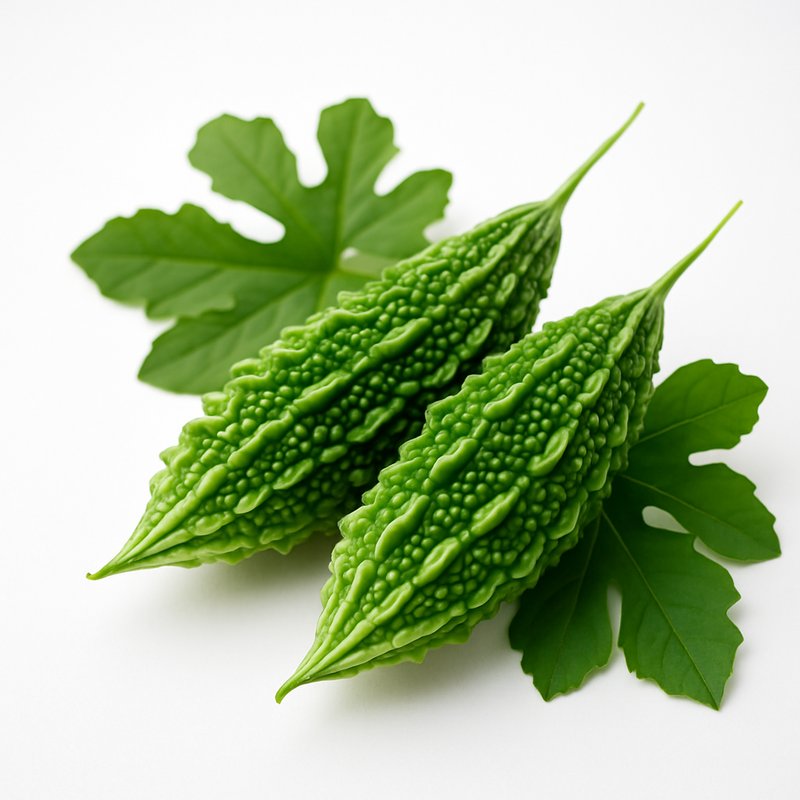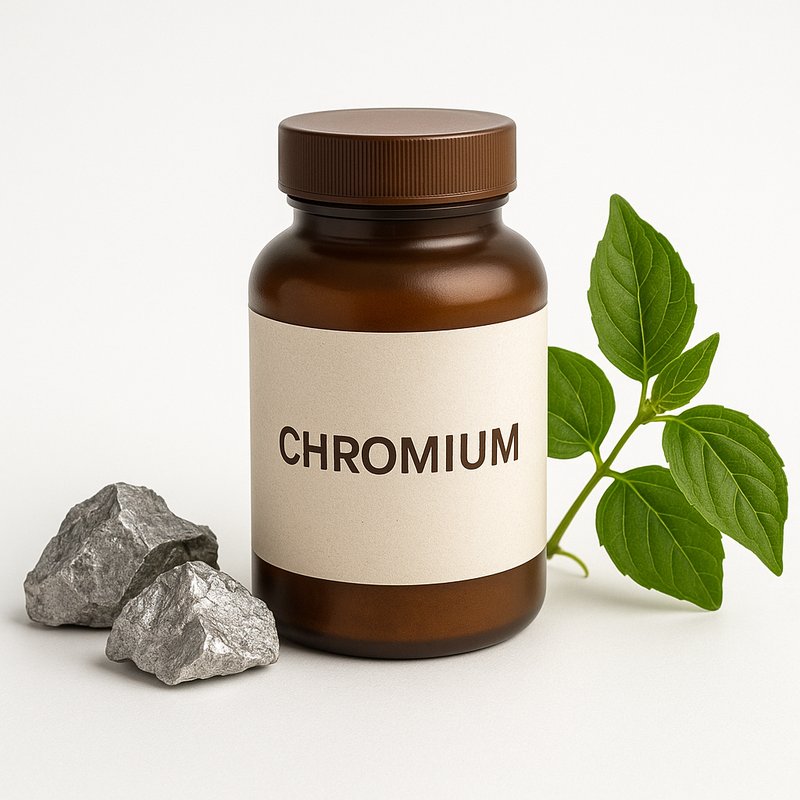An Opening Story
When I first heard a patient ask his doctor casually, “Is there anything natural I can take for my sugar besides meds?” the doctor gave a courteous but almost contemptuous shrug. “You can try, but don’t expect much.”
I still remember that moment. In fact, science has been subtly verifying that some natural substances can actually help blood sugar levels stabilize. They aren’t miracle cures — but they can be helpers.
Today, let’s examine seven of the most thoroughly studied supplements that could help promote normal blood sugar levels. Some you’ve heard of, others maybe not. At least one of them could permanently discolor your countertop, a few smell earthy, and one tastes like cinnamon toast.
1. Berberine: The Classic Bright Yellow
You are already familiar with this one if you have read our in-depth analysis of berberine. For centuries, Chinese and Ayurvedic medicine have utilized berberine, a bitter alkaloid derived from plants like goldenseal and barberry.

In the words of science:
- Berberine has been demonstrated in numerous studies to reduce triglycerides, HbA1c, and fasting glucose.
- Because of its capacity to activate AMPK, the body’s “metabolic master switch,” its effects are occasionally likened to those of metformin.
Everyday experience: The capsules are simple to use, but if you do break one open, beware — the yellow pigment will stick to your skin like turmeric on a white shirt.
Why it matters: Berberine is one of the few natural supplements with strong support from both tradition and contemporary research.
2. Cinnamon: A Classic Spice with a Unique Twist
You’ll immediately recognize the warm, sugary aroma of fall desserts when you open a jar of fresh cinnamon. However, cinnamon has also been researched for its ability to support blood sugar, especially Cinnamomum cassia.

Highlights of the research:
- Some studies show cinnamon can reduce fasting glucose and increase insulin sensitivity.
- A 2019 meta-analysis found type 2 diabetics who took cinnamon supplements experienced slight drops in HbA1c.
Dosage range: Usually 1–6 grams per day, though extracts are often utilized for consistency.
Important note: Not all cinnamon is created equal. Cassia cinnamon contains greater amounts of coumarin, which can stress the liver. Ceylon cinnamon, or “true” cinnamon, has much lower coumarin — though most studies are based on cassia.

3. Alpha-Lipoic Acid (ALA): The Antioxidant Worker Bee
Alpha-lipoic acid is a naturally occurring antioxidant that our bodies produce in trace amounts; it’s not a herb. Supplementing with ALA has become popular mainly for two reasons: blood sugar regulation and nerve support, particularly for diabetic neuropathy.
Scientific findings:
- Numerous studies have shown that ALA increases insulin sensitivity.
- Intriguingly, in some regions of Europe, intravenous ALA is even used to treat diabetic neuropathic pain.
How people describe it: Some say they have more energy and better concentration when supplementing. Others don’t notice much until lab results reveal improved glucose tolerance.
4. Gymnema Sylvestre: The “Sugar Destroyer”

Just the name is fascinating. Gymnema means “sugar destroyer” in Sanskrit. For more than 2,000 years, Ayurveda has made use of this woody climbing plant from India.
Unique effect: Chewing the leaves temporarily makes your tongue lose its ability to taste sweetness. Imagine biting into a cookie and tasting… cardboard. Strange, almost unsettling, but it demonstrates Gymnema’s direct interaction with sugar receptors.
Research data:
- Supplementation has been linked to reduced sugar absorption in the intestines.
- Some studies also report lower fasting glucose and decreased sugar cravings.
Why it’s appealing: By dulling sugar cravings in addition to improving metabolism, Gymnema can make it easier for people to follow healthier diets — often the hardest part of managing diabetes.

5. Bitter Melon: A Natural Insulin Substitute
If you’ve ever seen bitter melon in an Asian market, you’ll remember its appearance: elongated, bumpy, pale green, almost alien. True to its name, it is incredibly bitter.
Traditional use: Widely consumed in India, China, and Southeast Asia as both food and medicine.
Scientific findings:
- Compounds in bitter melon act somewhat like insulin, helping shuttle glucose into cells.
- Several small human studies demonstrate modest drops in blood sugar after supplementation or consumption.
Taste experience: If berberine stains, bitter melon scars your taste buds. Some people never like it, while others acquire the taste. Capsules and extracts are common alternatives to avoid the bitterness.

6. Chromium: The Helper Trace Mineral
Although needed only in tiny amounts, chromium plays a crucial role in fat and carbohydrate metabolism.
Evidence snapshot:
- Some studies link chromium picolinate supplementation with improved glucose tolerance, especially in individuals with deficiencies.
- Results vary — not all research agrees.
Why it matters: Deficiencies are rare, but when present, they can worsen blood sugar control. Supplementation fills that gap.
Caution: Excessive doses may cause stomach upset or interact with medications.
7. Fenugreek: The Culinary Remedy
Step into an Indian kitchen and you might smell fenugreek seeds frying in oil — the aroma is oddly similar to maple syrup. This spice has long been used as a traditional remedy for blood sugar.
Key compounds: Fenugreek seeds contain soluble fiber and 4-hydroxyisoleucine, thought to improve insulin function.

Research notes:
- Supplementation with 5–25 grams of powdered seeds daily has been linked to lower fasting glucose and HbA1c.
- Some people brew fenugreek tea, while others mix the powder into yogurt or baked goods.
Side quirk: High doses can make sweat or other body fluids smell faintly sweet — like maple syrup. Odd, but harmless.
Important Notes Before You Buy Them All
Being natural doesn’t mean risk-free. Each supplement on this list can interact with medications or cause side effects.
- Talk to your doctor first. Stacking effects with diabetes medication could trigger hypoglycemia.
- Choose quality. Not all brands are equal — look for third-party testing.
- Remember lifestyle first. Supplements support but don’t replace diet, exercise, and medical care.
Concluding Remarks
Do these supplements “cure” type 2 diabetes? No. But they might tip the balance. Sometimes that’s enough to help someone gain better control of their blood sugar, reduce medication reliance, or simply feel more empowered.
Think of them as tools in the toolbox:
- Berberine lubricates the hinges.
- Cinnamon adds sweetness.
- Gymnema dulls sugar’s allure.
- Bitter melon mimics insulin.
- Fenugreek offers a kitchen-friendly boost.
- ALA guards the nerves.
- Chromium fills in the gaps.
Not everyone will respond to all of them. But knowing they exist — backed by tradition and growing scientific research — offers additional strategies to tackle a condition that can feel relentless.
And perhaps that’s the point: having choices. Having faith.